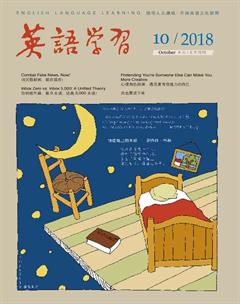雅各布·布尔克哈特——发明了“文化”的思想家
By Jonathan Jones

The bicentenary of the birth of a Swiss historian might not seem the most glamorous of anniversaries. Unlike his contemporary Karl Marx, also born in 1818, Jacob Burckhardt never inspired any revolutions and doesnt get his face on T-shirts. Yet some of us are celebrating the 200th birthday of Jacob Burckhardt lavishly1.
Once upon a time, newspapers used to have arts sections. Today, theyve caught up—very belatedly—with Burckhardt. The use of the term culture to mean a broad and changing flow of forms from opera to video games may seem like an innovation of the postmodern age, but it actually goes back to Burckhardts 1860 book The Civilisation of the Renaissance in Italy2.
Burckhardt invented culture as we know it—not just the official “arts”, but any human activity that has symbolic meaning.
Newspapers and their websites are still behind Burckhardt on this. Looking for articles about fashion and food? Youll find them in “lifestyle”. Burckhardt saw these too as culture. Of course, so do we—it would just get hard to organise stuff if it was all classed in one big mix. But everyone knows today that clothes are significant cultural creations and that cooking is about meaning as much as flavour. The amazing thing is how clearly Burckhardt saw it in 1860.
The Civilisation of the Renaissance in Italy has not one single chapter dedicated to Renaissance art. It does have, however, a section called “Ridicule and Wit”. Burckhardt explores every nuance3 of how people expressed themselves in 15th-century Italy, from cruel jokes to street festivals. In one of his most astonishing insights he even explores how people listened—he shows how sitting through long speeches was a cultural rite4 in itself. Its a revelation that makes you think about music and performance in a totally new way. One day, someone will write the history of how we listen today, the cultural history of headphones and podcasts. And that historian will owe everything to Burckhardt.

So who was this daring thinker His portrait on Switzerlands 1,000-franc note makes him look stern5 yet sensitive. Born in Basel to a wealthy family and educated in Berlin, where he was taught by the pioneering historian Leopold von Ranke6, he doesnt come across as much of a rebel. Yet Burckhardts work is an insidious7 attack on Germanic nationalism. Writing at a time when Prussia was leading the unification of Germany and pride in Teutonic northern virtues was growing,8 Burckhardt went out of his way to belittle north European achievements and show that Italy was the true source of European genius.
He thrills to the ruthless violence of Cesare Borgia, and of Ferrante, ruler of Naples,9 who according to Burckhardt used to make his guests dine alongside the preserved corpses of his torture victims. Its the kind of gory10 detail that makes his masterpiece a still-powerful read. It also widens his notion of culture still further. For Burckhardt, politics and war are cultural forms. He gets this idea from the Renaissance itself—one of his inspirations, Machiavelli11, wrote a book called The Art of War.
In 2018 we seem to be living in Burckhardts world—and it aint pretty. Not only is everything culture, but politics is a mad art form, ruled by symbolic forces that surge through social media. Are the new populist monsters of politics the descendants of the Renaissance despots who shocked and fascinated Burckhardt?12
This quiet scholars great book helps us understand our world just as much as the writings of Marx. More so, I fear, in this age when culture trumps13 reality.
在诸多重要的周年纪念日中,某位瑞士历史学家的二百周年诞辰似乎并非最令人瞩目。与他同时代的伟大的思想家卡尔·马克思不同,尽管同样出生于1818年,雅各布·布尔克哈特却不曾引领任何革命的洪流,他的脸庞也从未成为印在T恤上的文化符号。但的确有些人,正在隆重地庆祝着雅各布·布尔克哈特诞辰二百周年。
过去的报纸通常有名为“人文艺术”的版块。时至今日,尽管有些迟,它们终于追上了布尔克哈特的步伐。人们常使用“文化”这一术语来指代从歌剧到电子游戏这些贯穿不同时代、日新月异的文娱活动,这一似乎诞生于后现代时期的常用说法,其实源自布尔克哈特1860年的作品《文艺复兴时期的意大利文化》。
布尔克哈特发明了我们所熟知的“文化”,这个词汇的内涵不仅囊括了通常所谓的“人文艺术”,也包含了任何一种具有象征意义的人类活动。
在这方面,布尔克哈特无疑走在了所有报纸和网站的前面。想阅读关于时尚与美食的文章?你会在名为“生活方式”的栏目中找到。而这些,同样被布尔克哈特视为文化。当然,我们也一样—— 若不将纷繁多样的事物加以分类,整理起来将颇为麻烦。但如今,人人都认同服饰是重要的文化创造,而烹饪不仅关乎味道,更具有一定的文化内涵。不可思议的是,布尔克哈特早在1860年就清晰地认识到了这一点。
在《文艺复兴时期的意大利文化》一书中,没有一章是讲述文艺复兴的艺术的,而是在一个名为“嘲弄与风趣”的版块中,布尔克哈特探究了在15世纪的意大利人表达自我的每一个细微差别,从刻薄的笑话到街头庆祝活动。他最令人惊讶的见解之一,便是探寻了人们如何聆听——他将人们坐在台下听完一场冗长的演讲这一行为,定义为一种文化仪式。这一启示让人们从全新的角度来思考音乐与表演。未来的某一天,某位歷史学家会撰写历史来记录当今的人们如何聆听,也会写就关于耳机与播客的文化史,而他则需要将这一切归功于布尔克哈特。
那么这位大胆的思想家究竟是何许人也?1,000瑞士法郎纸币上印的便是他的肖像,他看起来严厉而敏感。布尔克哈特出生于瑞士巴塞尔的一个富裕人家,在柏林接受教育,师从先驱历史学家利奥波德·冯·兰克,他平静的人生中不曾有过叛逆的经历。然而,布尔克哈特的作品对于德国民族主义而言是一种颇有隐患的威胁。在他写作的时期,普鲁士正领导着德意志的统一之路,人们对日耳曼的北方美德抱有日益强烈的自豪感,但布尔克哈特却特意贬低欧洲北方的成就,颂扬意大利才是欧洲精神的真正源头。
布尔克哈特痴迷于切萨雷·波吉亚和那不勒斯王国统治者斐迪南一世的残暴无情,据他的描述,后者曾让他的宾客在酷刑至死的受害者的尸体旁享用晚宴。这种颇为血腥的细节令他的杰作充满持久的张力与阅读快感,也拓宽了他对文化这一概念的定义。对于布尔克哈特而言,政治与战争都是文化的形式。他是从文艺复兴本身得到这种看法的——他的启发者之一,马基雅弗利,写过一部名为《战争的艺术》的作品。
2018年,我们似乎生活在布尔克哈特的世界里,一个并不美好圆满的世间。不仅是关于文化的一切不再美好,政治也成了一种疯狂的艺术形式,被席卷社交媒体的各式具有象征意义的力量所统治。这些新时代的政治民粹主义怪物,是不是文艺复兴时期那些曾令布尔克哈特震撼并着迷的专制君主的后代传承?
这位低调的学者的伟大作品帮助我们理解这个世界,就如同马克思的作品那样。但在这个文化统治现实的时代,恐怕布尔克哈特的影响更甚。
1. lavishly: 慷慨地,丰富地。
2. The Civilisation of the Renaissance in Italy:《文艺复兴时期的意大利文化》,雅各布·布尔克哈特创作的历史学著作。该书主要论述了当时意大利的政治、文化思想和日常生活的发展历程,从多角度诠释了这一时期意大利人所体现的“人文主义”近代精神。布尔克哈特在已有研究的基础上从新的视角切入,构建了文艺复兴研究的新体系。
3. nuance:(方式、颜色、意义等的)细微差别。
4. rite: 仪式,典礼。
5. stern: 严厉的,苛刻的。
6. Leopold von Ranke: 利奥波德·冯·兰克(1795—1886),19世纪德国重要的历史学家,也是西方近代史学的重要奠基者之一,被誉为“近代史学之父”。
7. insidious: 潜伏的,暗中为害的。
8. Prussia: 普鲁士,位于北欧的原古普鲁士族居地,1701年起成为王国,1871年以其为中心建立了统一的德意志帝国;Teutonic:德意志民族特点的,日耳曼人风格的。
9. Cesare Borgia: 切萨雷·波吉亚(1475或1476—1507),即瓦伦蒂诺公爵,是意大利文艺复兴时期的军官、贵族、政治人物和枢机主教;Ferrante: 斐迪南一世(1423—1494),那不勒斯王国国王,1458至1494年间在位;Naples: 那不勒斯王国,中世纪意大利南部一封建国家。
10. gory: 暴力血腥的。
11. Machiavelli: 马基雅弗利(1469—1527),意大利历史学家、政治思想家、作家。他是意大利文艺复兴时期的重要人物。著有 《君主论》《论李维》《战争的艺术》等。
12. populist: 平民主义的,民粹主义的;despot: 专制君主,暴君。
13. trump: 胜过,打败。

